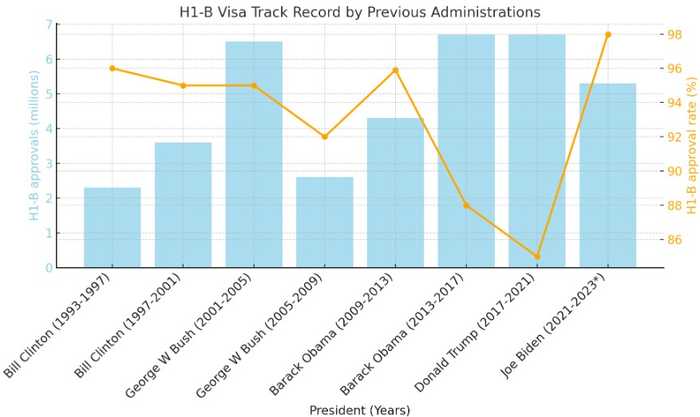Published 10:02 IST, November 5th 2024
It’s Election Day in America! Trump vs Harris—Who Represents a Better Future for India?
The clear differences in policies between Democratic candidate Kamala Harris and Republican Donald Trump are likely to affect different sectors in India.
- World News
- 3 min read
New Delhi: As the US election for the presidency draws to a close, the outcome will have important effects not just for America, but also for economies around the world, especially India. The clear differences in policies between Democratic candidate Kamala Harris and Republican candidate Donald Trump are likely to impact several sectors in India.
According to brokerage firm PL Capital, a Trump administration may favor global geopolitics, crude oil prices, defense technology, and pharmaceuticals. Current market predictions indicate a 56.5% chance of a Trump victory compared to a 43.5% probability for Harris, although opinion polls suggest a closely contested race.
The official results of the US election are set to be released on November 6 at 8:45 AM IST, with initial results expected shortly after polls close at 6 PM Eastern Time (22:00 GMT).
“The upcoming US presidential election could have critical implications for India against the backdrop of escalating geopolitical tensions, changes in leadership in Bangladesh , and a fragile situation in Southeast Asia,” PL Capital stated in its ‘India Strategy’ report. The US stance is crucial as India navigates tensions in South Asia and manages strategic shifts in the Indo-Pacific.
Kamala Harris vs Donald Trump : Potential Policies Impacting India
1. Trade Policy
- Kamala Harris: Advocates for multilateral trade agreements and regional collaborations, such as the Indo-Pacific Economic Framework. She is likely to renew the Generalized System of Preferences (GSP), which had previously benefited Indian exports.
- Donald Trump: Favors protectionism, focusing on renegotiating trade deals and imposing heavy tariffs. The termination of GSP in 2019 adversely affected $6.3 billion worth of Indian exports.
Implications:
- Harris's policies are expected to stabilize trade with India, while Trump’s approach may disrupt global trade but provide opportunities for India to fill gaps left by reduced Chinese imports.
2. Immigration Policy
- Kamala Harris: Supports expanding skilled worker visas, evidenced by high approval rates for H-1B visas during Biden's tenure.
- Donald Trump: Plans to tighten immigration rules, leading to a decline in H-1B visa approvals, which previously fell under his administration.

Implications:
Harris’s approach is favorable for India's IT services, while stricter immigration norms under Trump may adversely affect unskilled workers but could leave IT services largely unaffected. Historically, Democratic administrations have demonstrated a more favorable environment for H1-B approvals, achieving an average approval rate of 94.6%. In contrast, Republican presidents have overseen an average approval rate of 90.7% for H1-B applications.
3. Energy and Environment
- Kamala Harris: Proposes significant incentives for renewable energy, aligning with India’s goals to reduce fossil fuel dependence.
- Donald Trump: Prioritizes traditional energy sources and plans to revoke environmental regulations.
Implications:
Harris's policies would support India’s renewable energy initiatives, while Trump's focus on fossil fuels may result in lower global crude prices, beneficial for India's import needs.
4. Defence Relations
- Kamala Harris: Emphasizes strengthening Indo-Pacific partnerships and technology transfer.
- Donald Trump: Revived the Quad partnership and increased India’s defence imports through arms sales.
Implications:
Harris's focus could enhance India’s technological capabilities and align with US strategic interests, while Trump’s policies may boost defense imports but limit co-production initiatives.
5. Healthcare and Pharmaceuticals
- Kamala Harris: Aims to expand Medicare and lower drug prices through government negotiation with pharmaceutical companies.
- Donald Trump: Seeks to privatize Medicare and reduce government intervention in drug pricing.
Implications:
Harris’s healthcare policies could favor Indian generics if Medicare expands coverage, while Trump’s deregulation might enhance market penetration for Indian pharmaceuticals.
As the election outcome approaches, it is essential for India to assess the potential shifts in US policies and prepare for their implications across various sectors. Both candidates bring distinct policy frameworks that could shape the future of US-India relations and affect India's political landscape.
Updated 06:23 IST, November 6th 2024